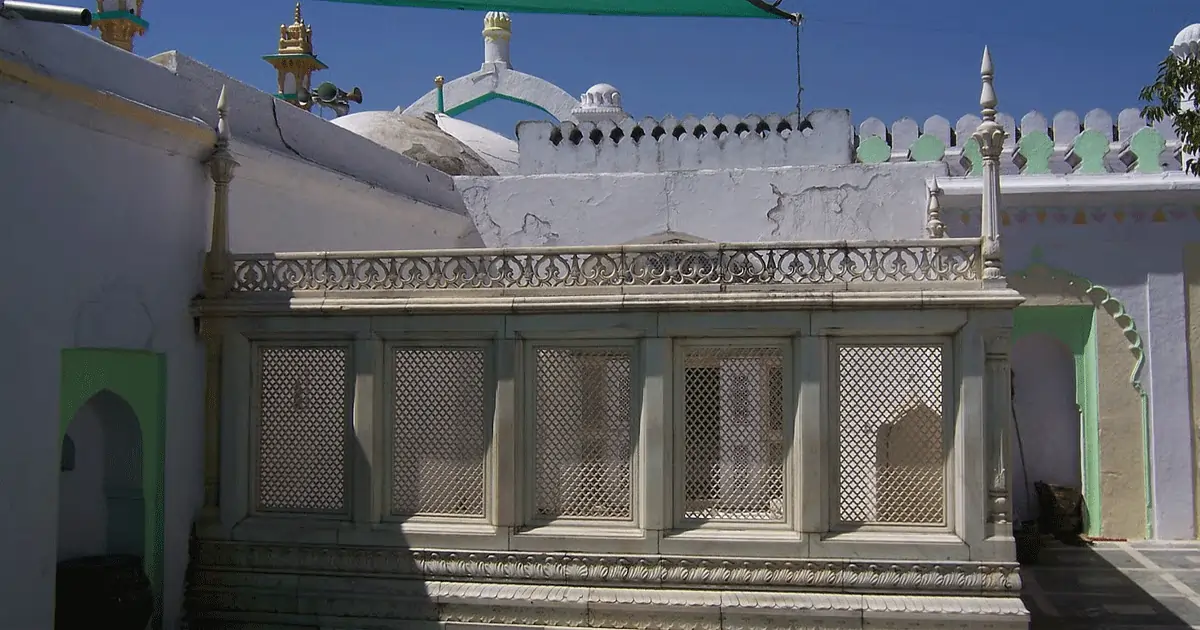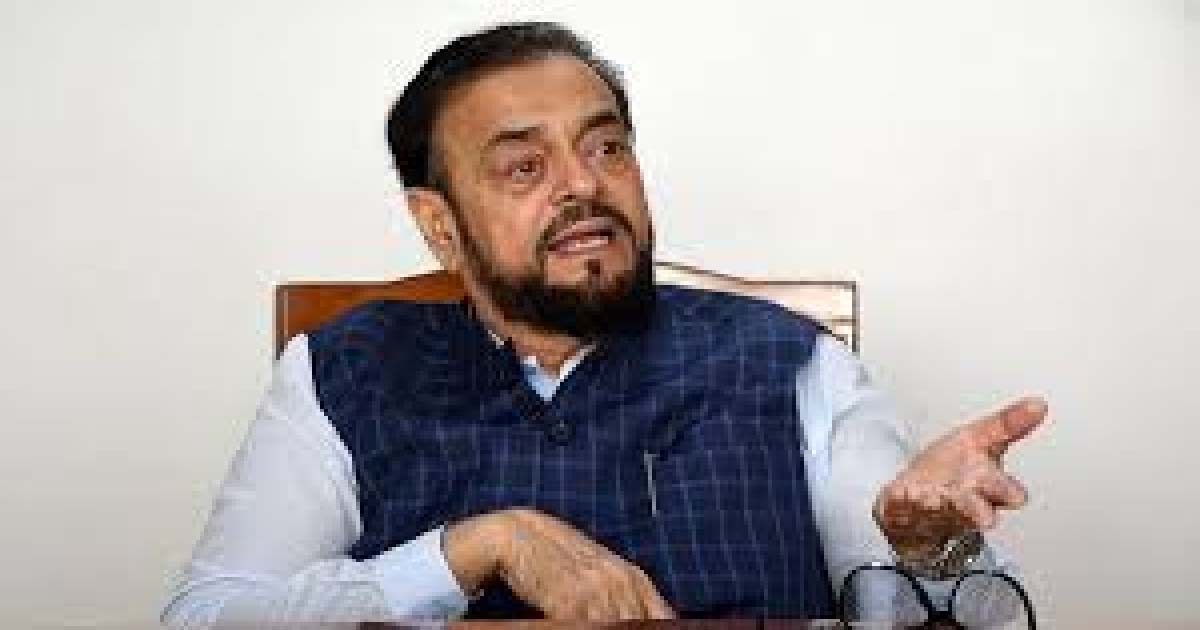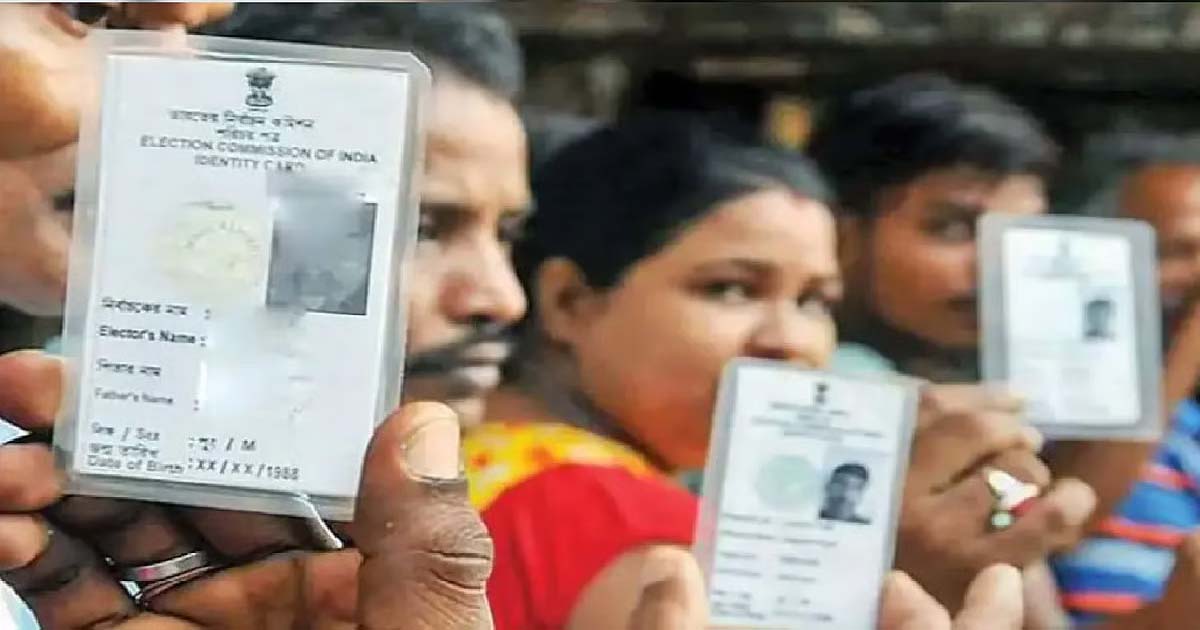Maharashtra
Sena UBT Mouthpiece Criticises Extremist Calls For Aurangzeb’s Tomb Demolition; Calls For Preserving Chhatrapati Shivaji Maharaj’s History

Mumbai: Shivaji Jayanti is an occasion to remember the legacy of Chhatrapati Shivaji Maharaj, who shaped Indian history with his valour and vision. However, in a fiery editorial, Shiv Sena UBT mouthpiece Saamana criticised certain fringe groups advocating for the destruction of Aurangzeb’s tomb, comparing it to the Babri Masjid demolition. The editorial argues that such demands distort history, insult Maharashtra’s warrior tradition and attempt to turn Hindutva into extremism.
According to report, those calling for the tomb’s destruction are enemies of Maharashtra’s proud legacy. “They wish to poison the state’s atmosphere and present themselves as Hindu Taliban,” the editorial states, adding that such actions misrepresent Hindutva and disrespect the ideals of Shivaji Maharaj’s Hindavi Swarajya.
The editorial revisits history, stressing that Shivaji Maharaj and the Marathas fought against oppression for 25 years, ultimately ensuring that Aurangzeb met his end in Maharashtra, exhausted and defeated. The presence of Aurangzeb’s tomb in Maharashtra, it argues, is not a mark of Mughal dominance but a symbol of the Marathas’ resilience.
Historical Context & Legacy of Aurangzeb’s Tomb
Aurangzeb waged a long campaign to conquer the Deccan, arriving in Maharashtra in 1681 with an army of eight lakh. His ambition was to establish a ‘second Delhi’ in the region and crush the Marathas. He stayed in Maharashtra for 24 years, struggling to subdue the Marathas.
Despite his vast military resources, he failed. The editorial cites historical records describing his grand procession into Maharashtra, complete with European artillerymen, hill warriors and war elephants, only to be relentlessly resisted by Maratha forces.
Aurangzeb died in 1707 in what is now known as Chhatrapati Sambhajinagar (Aurangabad), a broken man who could not achieve his goal of crushing the Maratha Empire. Saamana states that his tomb stands as a testament to his failure and the Marathas’ ultimate victory.
Calls For Political Action
The editorial strongly urges Maharashtra Chief Minister Devendra Fadnavis to put an end to what it calls ‘shameful attempts’ to use Shivaji Maharaj’s name for divisive politics. It warns against those trying to erase historical monuments for their own agendas. Instead of destruction, it advocates for understanding and preserving history.
The piece also recalls a historical anecdote involving PM Lad, a senior official in the Union Ministry of Information & Broadcasting during the Samyukta Maharashtra movement. When confronted by leaders questioning Maharashtra’s importance, he would tell them to visit Aurangzeb’s tomb in Chhatrapati Sambhajinagar. The tomb, he believed, symbolised Maratha courage and the Mughal Empire’s downfall.
A Call For True Hindutva
While Saamana acknowledges Aurangzeb’s brutality, it argues that true Hindutva, as exemplified by Shivaji Maharaj, is about honour, tolerance and wisdom, not blind destruction. It calls for Maharashtra’s youth to learn real history instead of engaging in provocative acts that undermine the state’s glorious past.
The editorial concludes by stating that Aurangzeb’s tomb is not a sign of Mughal victory but a reminder of how Maharashtra outlasted and defeated one of the most powerful rulers in history. In a scathing attack against the Maharashtra CM Devendra Fadnavis, the editorial ends with, “Chief Minister Fadnavis should shut down this shameful business running in the name of Chhatrapati Shivaji Maharaj!”
Maharashtra
Maharashtra: Abu Asim Azmi presents bill in the House against religious hatred and blasphemy, application of MCOCA and UAPA also included in the draft bill

Mumbai: Nagpur Samajwadi Party leader and MLA Abu Asim Azmi presented a private bill in the Maharashtra Legislative Assembly against those who spread blasphemy and religious hatred. The bill demands action against hate elements and calls for action under MCOCA and UAPA against those who spread religious hatred, in addition to ten years of imprisonment and a bail of Rs 2 lakh so that sectarians do not get bail and such cases of spreading religious hatred are banned. He told the House that there has been an increase in cases of blasphemy in the country and in such a situation, tension arises in the country. Action should be taken against such elements to maintain law and order. This will be possible only when action is taken against such sectarians who promote a hate agenda under the guise of freedom of expression. He said that the Supreme Court had also issued an order for strict action against hate elements and miscreants and has banned inflammatory and hate speech. In such a situation, Maharashtra The bill has been formally introduced in the House to take action against those who spread religious hatred and incite hatred against important people. The draft bill proposes to register a case against communalists under the section of the MCOCA UAPA, which carries a maximum sentence of ten years, so that such elements cannot be granted bail.
Maharashtra
Mumbai fuel theft gang busted, 13 accused arreste, The gang of thieves had attempted to steal fuel in November

Mumbai: Police claims to have busted a petrol theft gang. The accused were arrested for attempting to steal petrol from BPCL company on November 14 at around 3:30 am under the limits of RCF police station in Mumbai. A complaint was registered for attempting to steal fuel from the underground 18-inch Mumbai Manmade Multi-Product pipeline on Mumbai Gadkari Road. Vinod Devchand Pandit was arrested from Chembur on November 17 on the basis of technical investigation and information from an informant. His investigation revealed that the mastermind of this racket, Riaz Ahmed Ayub (59), Salim Mohammad Ali, Vinod Devchand Pandit had hatched a plan to steal fuel. 13 accused including Gopal Narayan, Mohammad Irfan, Vinay Shashikant, Ahmed Khan Juman Khan, Nishan Jagdish, Mustafa Manzoor, Nasir Shaukat, Imtiaz Asif have been arrested. All these accused have been arrested from various areas. Their arrests were made from Mumbai, Navi Mumbai and surrounding areas. This operation was carried out by Additional Commissioner Mahesh Patil and DCP Sameer Sheikh on the instructions of Mumbai Police Commissioner Deven Bharti.
Maharashtra
Vasai-Virar Faces 50,000 Duplicate Entries In Voter Roll; Voters Asked To Choose Single Booth

Virar: More than 50,000 duplicate voters have been found in the Vasai-Virar city area. The Municipal Corporation has published a list of these voters on its website. The Corporation has appealed to those whose names appear in duplicate to visit and vote at any one polling center of their choice and inform the Corporation of their decision in advance.
More than 50,000 duplicate voters were found in the draft voter lists published by the Vasai-Virar Municipal Corporation. This large number of duplicate entries has created a major conundrum. To resolve this issue, the Election Commission has allowed voters with duplicate names to cast their vote at any single designated polling center.
Accordingly, the Vasai-Virar Municipal Corporation has published the list of 50,000 duplicate voters on the municipal website. Municipal Commissioner Manoj Kumar Suryawanshi has appealed to these voters to check their names, select one polling center, and vote there.
-

 Crime3 years ago
Crime3 years agoClass 10 student jumps to death in Jaipur
-

 Maharashtra1 year ago
Maharashtra1 year agoMumbai Local Train Update: Central Railway’s New Timetable Comes Into Effect; Check Full List Of Revised Timings & Stations
-

 Maharashtra1 year ago
Maharashtra1 year agoMumbai To Go Toll-Free Tonight! Maharashtra Govt Announces Complete Toll Waiver For Light Motor Vehicles At All 5 Entry Points Of City
-

 Maharashtra1 year ago
Maharashtra1 year agoFalse photo of Imtiaz Jaleel’s rally, exposing the fooling conspiracy
-

 National News1 year ago
National News1 year agoMinistry of Railways rolls out Special Drive 4.0 with focus on digitisation, cleanliness, inclusiveness and grievance redressal
-

 Maharashtra1 year ago
Maharashtra1 year agoMaharashtra Elections 2024: Mumbai Metro & BEST Services Extended Till Midnight On Voting Day
-

 National News1 year ago
National News1 year agoJ&K: 4 Jawans Killed, 28 Injured After Bus Carrying BSF Personnel For Poll Duty Falls Into Gorge In Budgam; Terrifying Visuals Surface
-

 Crime1 year ago
Crime1 year agoBaba Siddique Murder: Mumbai Police Unable To Get Lawrence Bishnoi Custody Due To Home Ministry Order, Says Report












